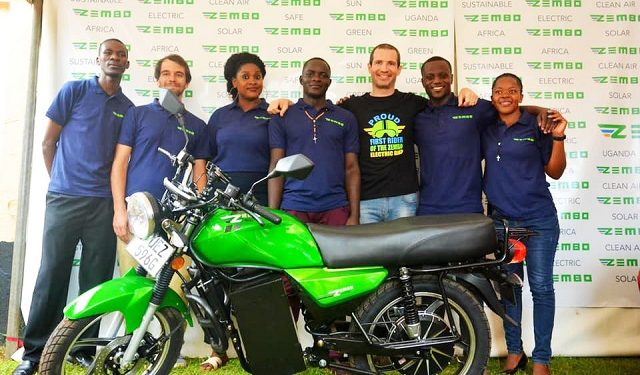By THE INDEPENDENT UG
Kampala, Uganda | AGENCIES | Eight businesses in Uganda, dedicated to addressing climate change, have been chosen to participate in the inaugural phase of the Climate Finance Accelerator Uganda (CFA), a program sponsored by the UK. The CFA aims to unite stakeholders to develop and finance climate projects on a large scale, contributing to the fulfillment of climate targets set under the Paris Agreement. This initiative, spanning 10 countries, including Egypt, Nigeria, and South Africa, marks its first year in Uganda, with successful projects selected from over 160 applications.
Projects from various sectors such as waste, transport, energy, agriculture, forestry, and other land uses (AFOLU) have been chosen, presenting a potential benefit to communities across Uganda. The projects collectively seek over USD 90 million in funding.
Each selected business will receive personalized support and advice from financial and technical experts to strengthen their projects and enhance their chances of attracting investment. This support includes guidance on financial models, preparation of pitch materials, and improvements to gender equality and social inclusion (GESI) aspects.
Following capacity building and mentoring sessions, the projects will engage with international, UK, and Uganda investors and financial institutions at a final event scheduled for March 2024 in Kampala. This event aims to facilitate connections between the projects and investors, catalyzing opportunities.
The British High Commissioner, Kate Airey, expressed excitement about the quality of the projects selected for the first cohort of CFA Uganda. She highlighted the program’s innovative use of UK expertise and funding to provide promising investment opportunities in the crucial area of climate and to support the growth of Ugandan businesses.
Amanda Kabagambe, Managing Director of Bethel Advisors, the implementers of CFA Uganda, emphasized the significance of the selected businesses in contributing to a sustainable green transition in Uganda. Kabagambe also noted the encouraging representation of women in the founding and leadership teams of these businesses, acknowledging the challenges faced by female leaders in accessing opportunities and affordable capital.
The selected projects include initiatives focused on sustainable fuel sources, tea processing with renewable energy integration, waste-to-energy facilities, solar energy battery refurbishment, electric vehicle taxi fleets, hydroelectric power projects, promoting cooking with electricity, and motorcycle and battery charging services targeting the motorcycle taxi industry in Uganda.







Discussion about this post